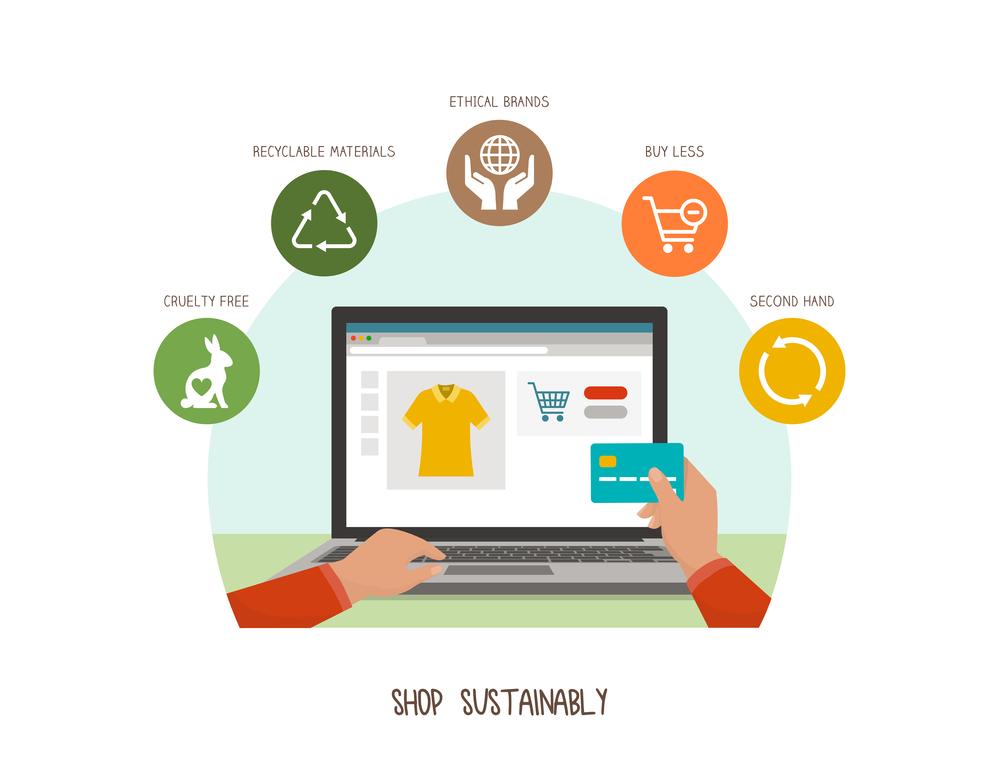Nowdays Sustainability is a main issue, especially at a global level.
The 2030’s plan for Sustainable Development is focused on 17 Sustainable Development Goals to achieve environmental, economic, social and institutional fields.
Even in the e-commerce landscape, sustainability is not just a trend but has become a necessity.
In this article we will analyze the crucial role that sustainability plays in e-commerce and explore how artificial intelligence is defining more eco-friendly future.
The climate change urgency
In recent years, the world has realized the urgency of face to climate change and environmental degradation. The impact of resource depletion, pollution and carbon emissions has forced companies to reconsider their strategies and embrace sustainability.
In this scenario, E-commerce, being a driver of consumer activity, is no exception.
Sustainability in e-commerce includes various aspects such as eco-friendly packaging, energy-efficient supply chains and waste reduction.
These initiatives contribute to a healthier planet with an increasingly eco-conscious consumer base.
One of the most significant driving forces is the undeniable impact of Artificial Intelligence (AI). Algorithms based on artificial intelligence and machine learning have revolutionized the way companies can make decisions. By streamlining transportation and distribution processes, companies can significantly reduce their carbon footprint.
In the world of e-commerce, sustainability is a strategic necessity for businesses that want to thrive in the long term.
Why sustainability is important in e-commerce
1. Meeting consumer expectations: Today’s consumers are environmentally conscious and socially responsible.
They expect the brands they support share these values and work towards sustainability. E-commerce companies that prioritize sustainability are more likely to gain the trust and loyalty of their customers.
2. Regulatory compliance: Governments and regulatory bodies are adopting restrictive environmental regulations and standards. Companies that do not comply may face with legal consequences. By sustainable practices, e-commerce businesses can avoid legal issues and demonstrate their commitment to protecting the environment.
3. Cost savings: Sustainability initiatives often lead to long-term cost savings. For example, reducing packaging waste can reduce material and shipping costs while energy efficiency practices can reduce utility bills. These savings can be reinvested in the business or passed on to customers, making sustainable e-commerce more economically feasible.
4. Competitive Advantage: As sustainability becomes a determining factor in consumer decision-making, companies that are at the forefront of sustainable practices gain a competitive advantage. They can change themselves from the competition and attract a larger share of the growing eco-conscious market.
Today the average consumer follows his heart, even when purchasing, and his choices are increasingly based on values, in which price and quality are only part of the determining factors. The new generations, increasingly attentive to the environment and aware of their purchases, are asking producers and retailers for transparency on the origin of the products and the raw materials. They want to participate on the environmental impact and they are the main driver of growing sustainability. This trend does not apply only to production but to the entire supply chain, from logistics to packaging. Transparency is the watchword and an example of this is a solution such as making carbon dioxide emissions and their reduction.
Sustainable brands: examples
More companies have identified the importance of this trend, its impact on the consumer and the future of business.
If we think about a sustainable brand, Patagonia comes to mind first of all, one of the first companies which have revolutionized the Fashion market with its strategy based on the concept of environmental sustainability.
But in the fashion sector we can mention others, such as Levi’s, The North Face and Gucci, while as a new entry emerges instead the Italian Golden Goose that launched last July the format ‘Forward Store’, in which the brand promotes circular repair initiatives, remaking, resale and recycling.
Levi’s among other initiatives created a separate shopping page for recycled denim products and from this year began to disseminate the map of its suppliers, in order to show its carbon footprint.
From the Fashion fields of Home & Living industry, an example is R5 Living, whose products are certified plastic negative. The company is the promoter and supporter of the Compact by design model. Its products are water-free in order to reduce the weight of transport and the impact on the environment.
In conclusion, sustainability is not just a trend; it is a fundamental pillar of the future of e-commerce. The integration of artificial intelligence into online sales processes has proven to be a turning point, enabling companies to reduce waste, optimize operations and meet the needs of an environmentally conscious consumer base.
Sustainability in e-commerce is not only positive for the planet but also for the growth of the business, making it a profitable strategy for a greener and prosperous future. As e-commerce continues to evolve, companies that prioritize sustainability will stand out as leaders in this crucial move toward a more sustainable world.
Contact us for free consultancy and start selling on online marketplaces!

